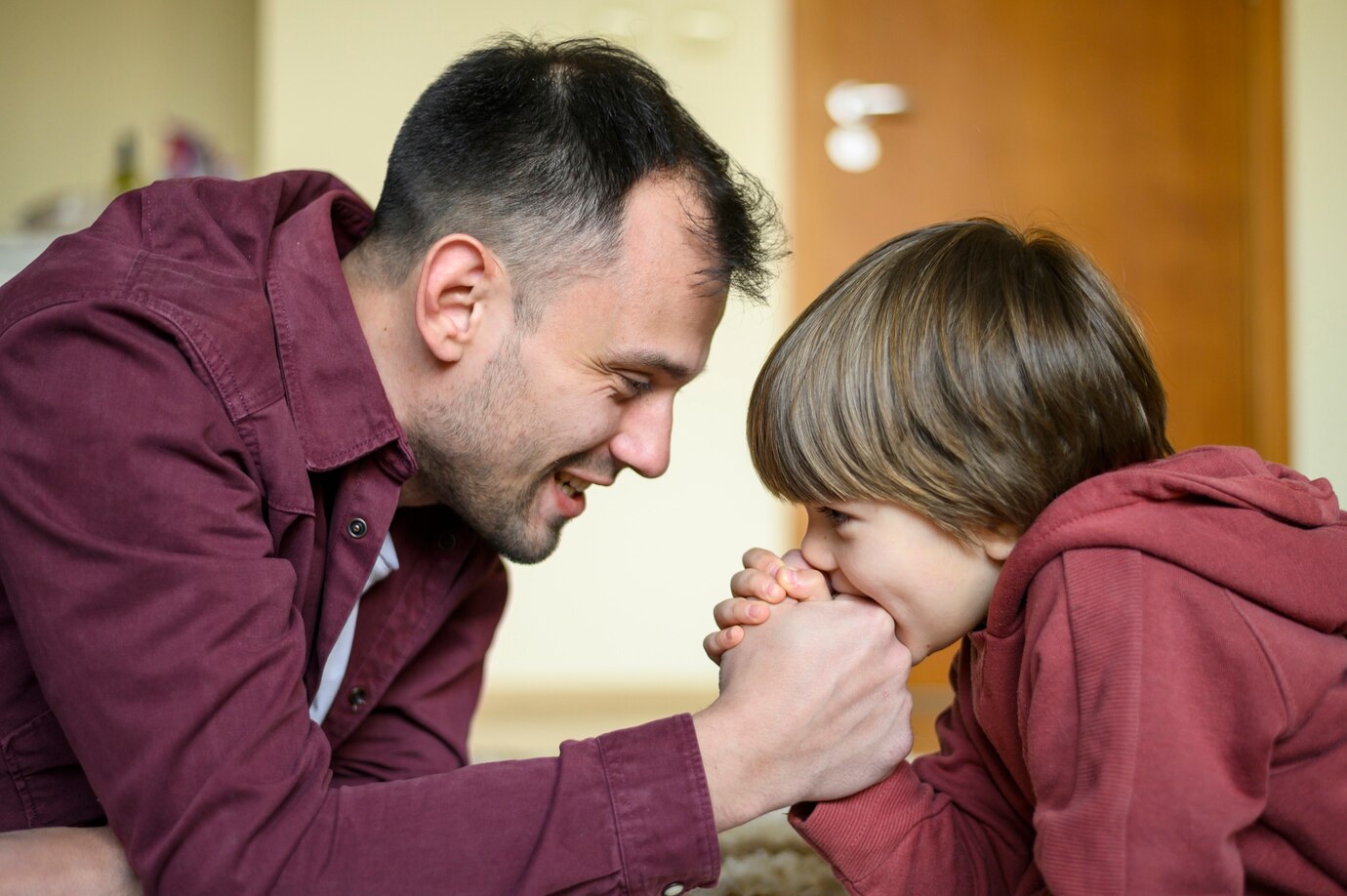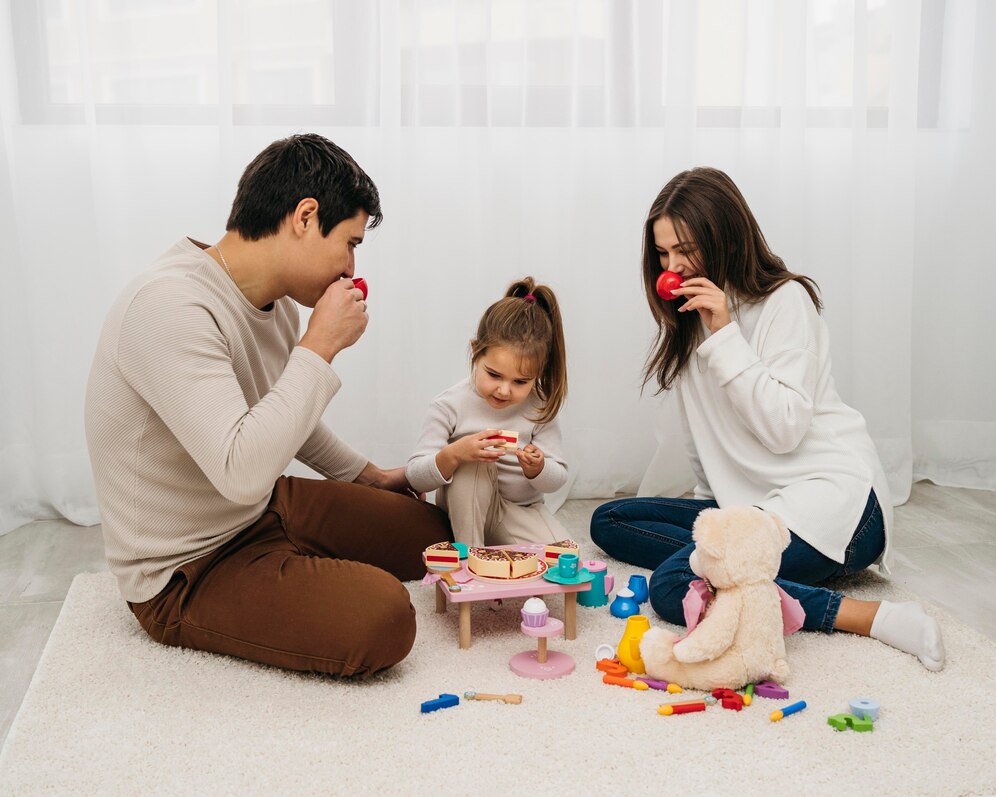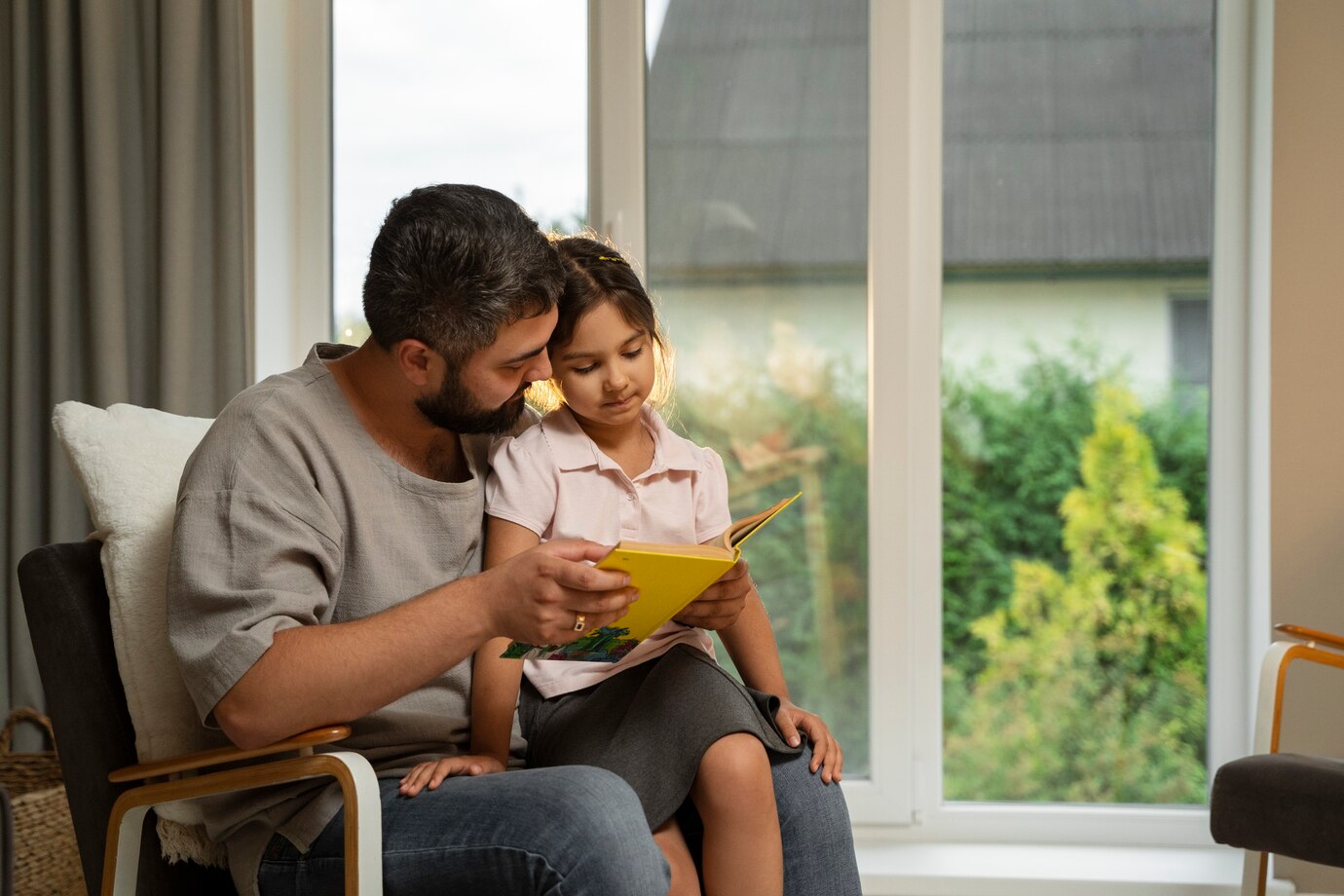
The Power of Positive Reinforcement in Parenting
Parenting is said to be both the best and hardest job you will ever have. As a parent, your instinct to care for, lead, and promote your child’s growth and progress comes first. But one technique stands out amid all the advice: positive reinforcement. It works well and has lasting effects.
In this blog, we explore the power of positive reinforcement in parenting. It can greatly affect a child’s emotional well-being and development. We’ll look at positive parenting techniques. We’ll explore the best ways to encourage kids and how to use positive discipline well.
Behavioural psychology introduced the idea of rewarding good behaviour — positive reinforcement. It promotes desired behaviours using reinforcements or positive consequences. Positive reinforcement encourages and strengthens good behaviour. It’s not punishment or negative reinforcement. They are intended to prevent undesirable actions. This model is more positive and builds a sense of safety and connection between parents and children.
Key Benefits / Why It Matters

Enhancing Emotional Well-Being
Positive reinforcement plays a crucial role in enhancing a child’s emotional well-being. When kids get praise for their work, it lifts their self-esteem and confidence. This helps build a positive self-image. It also encourages them to keep showing good behaviour. Kids raised in positive environments usually feel happier and more emotionally stable.
Building Stronger Parent-Child Relationships
Implementing positive parenting techniques helps build stronger parent-child relationships. Parents can help kids by encouraging them instead of criticising them. This way, they create a safe and supportive space. In this atmosphere, children feel valued and understood. This approach promotes open communication, trust, and respect. These are key parts of a strong, lasting relationship.
Promoting Positive Behavioural Patterns
Positive reinforcement encourages the development of positive behavioural patterns. By consistently rewarding good behaviour, children are more likely to repeat those actions. This method helps kids learn key life skills. These include sharing, empathy, and responsibility. Over time, these behaviours become ingrained, leading to well-adjusted and socially competent individuals.
Real-Life Applications
Imagine a scenario where a child struggles with completing their homework on time. Instead of punishing a child for being late, a parent can use positive reinforcement. They might give extra playtime or a favourite treat when the child finishes homework on time. This approach motivates the child to finish tasks. It also links homework completion to a positive outcome. This connection makes it more likely that the child will keep this behaviour in the future.
Step-by-Step Guide / Actionable Insights
Understanding Positive Reinforcement
Before implementing positive reinforcement, it is essential to understand its core principles. Positive reinforcement means finding the actions you want to promote. Then, link those actions to good results. These outcomes can take various forms, such as verbal praise, tangible rewards, or extra privileges.
Identifying Target Behaviours
To use positive reinforcement well, first, find the behaviours you want to encourage. These could range from simple tasks like tidying up toys to more complex behaviours like showing empathy towards others. Clearly define what constitutes the desired behaviour to ensure consistency in reinforcement.
Choosing Appropriate Rewards
Selecting appropriate rewards is crucial for the success of positive reinforcement. Rewards should be meaningful and motivating to the child. They can be tangible, such as stickers or small toys, or intangible, such as verbal praise or quality time with a parent. It’s important to tailor the rewards to the child’s interests and preferences to maximise their impact.
Consistency is Key
Consistency is a fundamental aspect of positive reinforcement. Ensure that you consistently acknowledge and reward the desired behaviour each time it occurs. This consistency helps reinforce the behaviour and encourages its repetition. It’s also important to communicate clearly with the child about what behaviour is being rewarded and why.
Implementing Positive Discipline

Positive discipline is an integral part of positive reinforcement. It focuses on teaching and guiding children rather than punishing them for their mistakes. Positive discipline helps kids see how their actions affect them. They learn and grow from these experiences.
Setting Clear Expectations
Establishing clear expectations is essential for positive discipline. Communicate with your child about the behaviours you expect and the reasons behind them. This clarity helps children understand what is expected of them and how they can meet those expectations.
Encouraging Problem-Solving
Encourage children to engage in problem-solving when faced with challenges. Instead of providing immediate solutions, guide them in brainstorming and evaluating potential solutions. This method helps kids think critically. It also encourages them to own their actions.
Using Natural Consequences
Natural consequences are a valuable tool in positive discipline. Allow children to experience the natural outcomes of their actions, both positive and negative. For example, if a child forgets to bring their lunch to school, they may feel hungry. This experience teaches them the importance of responsibility and planning.
Additional Expert Tips & Common Mistakes to Avoid
Best Practices in Positive Reinforcement
- Be Specific with Praise: When praising your child, be specific about what behaviour you are acknowledging. Instead of saying, “Good job,” say, “I really appreciate how you shared your toys with your friend today.”
- Balance Rewards and Intrinsic Motivation: Rewards are effective. It’s important to also encourage intrinsic motivation. Help your child understand the intrinsic benefits of good behaviour, such as the joy of helping others.
Common Mistakes and Misconceptions
- Overuse of Rewards: Avoid over-relying on rewards, as this can lead to children expecting rewards for every action. Gradually reduce the frequency of rewards as behaviours become ingrained.
- Inconsistent Reinforcement: Inconsistency in reinforcement can confuse children. It undermines the effectiveness of positive reinforcement. Ensure that you consistently acknowledge and reward desired behaviours.
- Ignoring Effort: Focus not only on the outcomes but also on the effort your child puts into their actions. Acknowledge their hard work and perseverance, even if the desired outcome is not achieved.
Advanced Insights / Expert Recommendations
Tailoring Positive Reinforcement to Different Ages
Positive reinforcement can be adapted to suit children of different ages. For younger children, tangible rewards and verbal praise are often effective. As kids get older, think about adding more complex rewards. This could include privileges or responsibilities that fit their growth stage.
Integrating Positive Reinforcement with Other Parenting Strategies
Positive reinforcement is most effective when integrated with other positive parenting techniques. Mix active listening, empathy, and boundaries for a well-rounded parenting approach.
The Lasting Impact of Positive Reinforcement in Parenting

The importance of positive reinforcement in parenting cannot be stressed enough. Encouraging and supporting your child can help improve their emotional health. This helps develop a strong association and encourages good behaviour.
As you embark on this journey of positive parenting, remember these: Find what works for you; be consistent, be clear, and adapt guidelines to suit your child. Reinforce positive attitudes in your kids by rewarding even small achievements. This will direct them towards the light, and they will grow in your protective, nurturing school.
What positive reinforcement techniques have worked for you in parenting? Share your experiences and insights in the comments below!